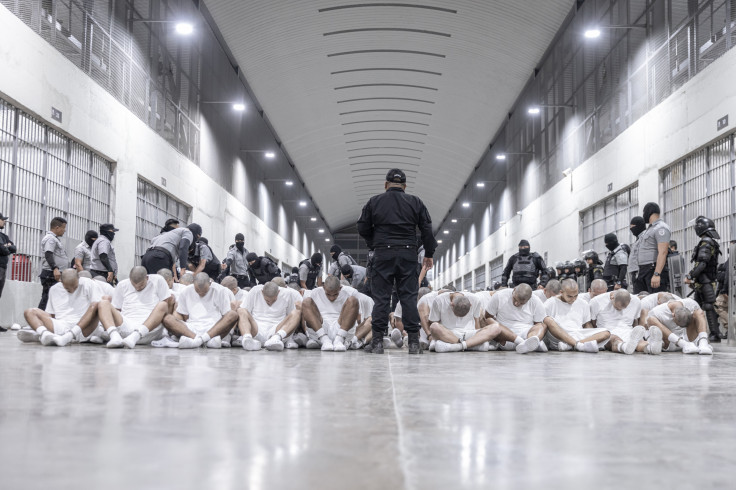
The more than 200 Venezuelans who were sent to an infamous mega-prison in El Salvador were sent back to their home country earlier this week as part of a prisoner exchange between the Maduro regime and the Trump administration. Now, some of them are recounting the horrors they endured.
Julio Gonzalez Jr., a 36-year-old Venezuelan who was an office cleaner and house painter in Texas, said that when he agreed to be deported back in March he assumed he would be taken back to his home country. Instead, the plane landed in El Salvador.
"The horror movie started there," Gonzalez told The Washington Post Tuesday.
When his plane landed in El Salvador, Gonzalez and two other detainees told The Washington Post that they were yanked by their feet, beaten and shoved off board as the plane's crew began to cry. Dozens of migrants were forced onto a bus and driven to a massive gray complex. They were ordered to kneel there with their foreheads pressed against the ground as guards pointed guns at them.
Gonzalez was held at CECOT for four months. He recounts that not only was he beaten with wooden bats, but was also robbed of thousands of dollars and denied access to lawyers or a chance to call his family.
"I practically felt like an animal," Gonzalez said by telephone from his parents' home. "The officials treated us like we were the most dangerous criminals on Earth... They shaved our heads, they would insult us, they would take us around like dogs."
Another man, Joen Suarez, 23, told the outlet that he was taken several times to a dark room known as La Isla— or "the island"— and beaten, kicked and insulted. He says that when they entered the prison, they were told to run, hunched over without looking up, the shackles so tight that he could hardly breathe.
A prison guard who identified himself as the prison director addressed them all as gang members and terrorists, Suarez said. However, many of the prisoners have denied any gang allegations, and neither the U.S. nor El Salvador has provided evidence that they are gang members.
"This is hell," Suarez recalled the prison director saying, "and you're never going to get out."
At the prison, Gonzalez recalled, Venezuelans were held in cells of nine to 15 people with metal benches for beds— thin mattresses were brought in for photographs and then taken away— and water buckets for drinking and bathing. "It looked like a cage," he said.
The Venezuelan immigrants were deported from the U.S. under the Alien Enemies Act of 1798, a rarely employed wartime law. Upon their return to their home country, Venezuela's minister of the interior, justice and peace, Diosdado Cabello, said the government there would continue to try to bring home Venezuelans imprisoned in the U.S. and El Salvador.
"We will keep demanding the return of all the Venezuelans kidnapped by the government of the United States, kidnapped by the government of El Salvador," Cabello said in televised remarks. "All of them, we demand that they return them to our country. To their home country."
© 2025 Latin Times. All rights reserved. Do not reproduce without permission.




